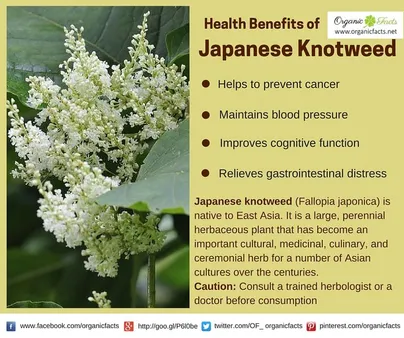Table of Contents
Delve into the world of Japanese herbs and spices, where culinary delights intertwine with medicinal wonders. Their rich history and diverse properties have been treasured for centuries, offering a path to enhanced well-being. From their antioxidant and anti-inflammatory capabilities to their role in disease prevention, these culinary treasures hold immense potential for promoting a healthier lifestyle. Join us as we explore The health benefits of Japanese herbs and spices, empowering you with knowledge to incorporate their goodness into your daily routine. Discover how Tauhuichiban unveils the secrets of these ancient remedies, guiding you towards a more balanced and fulfilling life.

The health benefits of Japanese herbs and spices: A natural path to well-being
I. Japanese Herbs and Spices: A Culinary and Medicinal Treasure Trove
Japanese cuisine is renowned for its delicate flavors and emphasis on fresh, seasonal ingredients. Beyond their culinary appeal, Japanese herbs and spices hold a rich history of medicinal use, offering a wealth of health benefits. This article explores the remarkable properties of these culinary and medicinal treasures, delving into their antioxidant, anti-inflammatory, and disease-fighting capabilities. Discover how incorporating Japanese herbs and spices into your diet can enhance your well-being and promote a healthier lifestyle.
Japanese Culinary Herbs and Spices
The Japanese archipelago is blessed with a diverse climate and geography, giving rise to a wide variety of culinary herbs and spices. Some of the most commonly used include:
- Ginger: A pungent and aromatic rhizome that adds warmth and flavor to dishes. It is also known for its medicinal properties, aiding digestion and reducing inflammation.
- Wasabi: A spicy green paste made from the root of the Japanese horseradish plant. It is often served with sushi and sashimi and has antibacterial and antimicrobial properties.
- Shiso: A leafy herb with a distinctive purple or green color. It is used in salads, soups, and as a garnish, and is rich in antioxidants and vitamins.
- Sansho: The dried berries of the Japanese pepper tree. They have a citrusy and slightly numbing flavor and are often used in noodle dishes and soups.
- Yuzu: A citrus fruit that is smaller and more fragrant than a lemon. Its zest and juice are used in sauces, dressings, and desserts, and it is also known for its antioxidant and anti-inflammatory properties.
These herbs and spices not only enhance the flavor of Japanese dishes but also contribute to their nutritional value, making them an essential part of a healthy Japanese diet.
Japanese Medicinal Herbs and Spices
Beyond their culinary uses, many Japanese herbs and spices have been traditionally used in herbal medicine for centuries. They are believed to possess various medicinal properties, including:
Herb/Spice | Medicinal Properties |
|---|---|
Ginger | Anti-inflammatory, antioxidant, aids digestion |
Wasabi | Antibacterial, antimicrobial |
Shiso | Antioxidant, antiviral |
Sansho | Anti-inflammatory, analgesic |
Yuzu | Antioxidant, anti-inflammatory |
Matcha | Antioxidant, boosts metabolism |
Turmeric | Anti-inflammatory, antioxidant |
Ginseng | Boosts energy, improves cognitive function |
Incorporating these herbs and spices into your diet can not only add flavor but also provide a range of health benefits, supporting overall well-being and reducing the risk of chronic diseases.
II. Exploring the Health Benefits of Japanese Herbs and Spices
Beyond their culinary appeal, Japanese herbs and spices hold a rich history of medicinal use, offering a plethora of health benefits. Let’s delve into the remarkable properties of these culinary and medicinal treasures:
Antioxidant and Anti-inflammatory Properties
Japanese herbs and spices are packed with antioxidants, which help neutralize free radicals, protecting cells from damage and reducing the risk of chronic diseases. They possess anti-inflammatory properties, alleviating inflammation throughout the body and supporting overall well-being.
Cardiovascular Health
Some Japanese herbs have been linked to improved cardiovascular health. For instance, nattokinase, an enzyme found in natto, may help dissolve blood clots and reduce the risk of heart attacks and strokes.
Cancer Prevention
Certain Japanese herbs and spices contain compounds that have been shown to have anti-cancer properties. Green tea, for example, is rich in antioxidants called catechins, which have been associated with a reduced risk of some types of cancer.
Digestive Health
Japanese herbs and spices can aid in digestion. Ginger, for instance, has carminative properties, which help reduce gas and bloating. Umeboshi, a type of pickled plum, can promote a healthy digestive environment.
Immune System Support
Japanese herbs like shiitake mushrooms and maitake mushrooms contain polysaccharides, which help boost the immune system and protect against infections.
Weight Management
Some Japanese herbs and spices may support weight management. Konjac, a plant-based fiber, can promote satiety and aid in weight loss.
Japanese Herb or Spice | Health Benefits |
|---|---|
Natto | Dissolves blood clots |
Green tea | Antioxidant and anti-cancer properties |
Ginger | Reduces gas and bloating |
Umeboshi | Promotes a healthy digestive environment |
Shiitake mushrooms | Boosts the immune system |
Konjac | Promotes satiety and aids in weight loss |

Exploring the Health Benefits of Japanese Herbs and Spices
III. Culinary Applications of Japanese Herbs and Spices
Japanese cuisine is renowned for its subtle flavors and delicate presentation, and Japanese herbs and spices play a vital role in achieving this culinary excellence.
From the pungent aroma of wasabi to the zesty tang of yuzu, these ingredients add depth and complexity to a wide range of dishes. In cooking, Japanese herbs and spices are used to enhance the natural flavors of ingredients, create balance, and add a touch of umami.
Herb or Spice | Flavor Profile | Common Uses |
|---|---|---|
Wasabi | Pungent, spicy | Sushi, sashimi, soba noodles |
Yuzu | Zesty, citrusy | Ponzu sauce, dressings, marinades |
Shiso | Earthy, minty | Tempura, salads, soups |
Mitsuba | Mild, grassy | Miso soup, noodle dishes, garnishes |
Nori | Salty, seaweed | Sushi, onigiri, soups |
Japanese herbs and spices can be used fresh, dried, or ground. Fresh herbs are often used as garnishes or added to dishes at the end of cooking to preserve their delicate flavors.
Dried herbs and spices are more concentrated and can be used in smaller quantities. Ground spices are often used in spice blends or marinades.
Here are some tips for using Japanese herbs and spices in your cooking:
- Start with small amounts and adjust to taste. Japanese herbs and spices can be potent, so it's important to use them sparingly.
- Use fresh herbs whenever possible. Fresh herbs have a more delicate flavor than dried herbs.
- If using dried herbs, soak them in water for a few minutes before using. This will help to rehydrate them and release their flavor.
- Store herbs and spices in a cool, dark place. This will help to preserve their flavor and aroma.
With their unique flavors and versatility, Japanese herbs and spices are a valuable addition to any kitchen. They can be used to create a wide range of dishes, from traditional Japanese fare to modern fusion cuisine.
IV. Incorporating Japanese Herbs and Spices into Your Diet
Cooking with Japanese Herbs and Spices
- Japanese cooking is renowned for its fresh, seasonal ingredients and subtle flavors. Herbs and spices play a vital role in enhancing the natural flavors of dishes, adding a layer of complexity and depth.
- Common Japanese herbs and spices include shiso, myoga, mitsuba, and sansho. These herbs offer unique and refreshing aromas and flavors, complementing the delicate nature of Japanese cuisine.
- When cooking with Japanese herbs and spices, it's essential to use them in moderation to preserve the balance of flavors. Start with a small amount and gradually adjust according to your taste preferences.
Supplements and Teas
- In addition to incorporating Japanese herbs and spices into your cooking, you can also enjoy their benefits through supplements and teas.
- Japanese herbal supplements are available in capsule or powder form and offer a convenient way to consume concentrated amounts of herbs for specific health purposes.
- Japanese teas, such as matcha and hojicha, are not only refreshing but also packed with antioxidants and other beneficial compounds. They can be enjoyed hot or cold and make a healthy and flavorful addition to your daily routine.
V. Conclusion
Japanese herbs and spices offer a wealth of health benefits, enhancing our culinary experiences and promoting overall well-being. Their antioxidant, anti-inflammatory, and disease-fighting properties make them valuable additions to a healthy diet. By incorporating these culinary treasures into our cooking, we can harness their medicinal powers and enjoy the rich flavors and traditions of Japanese cuisine. As we continue to explore the benefits of Japanese herbs and spices, future research will undoubtedly uncover even more ways in which these natural remedies can support our health and vitality.